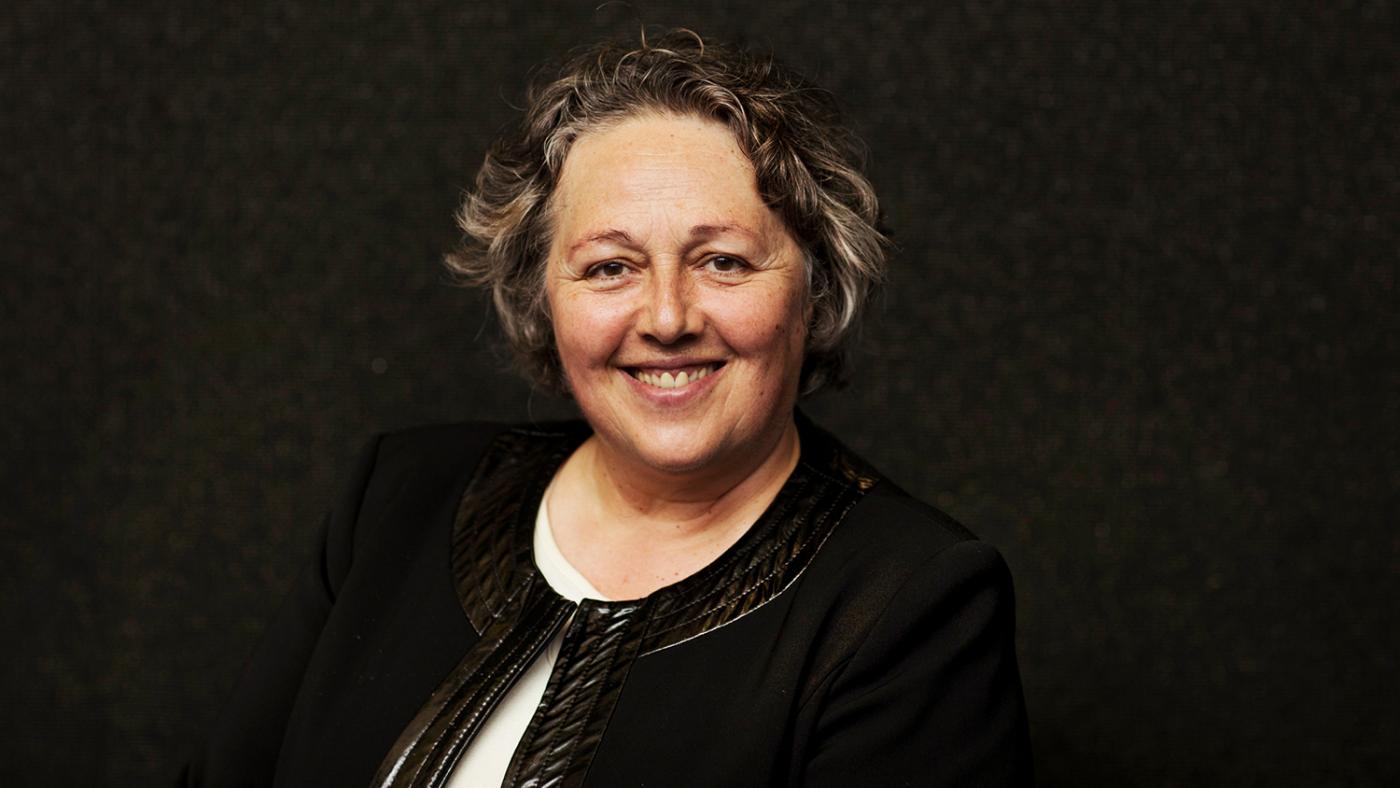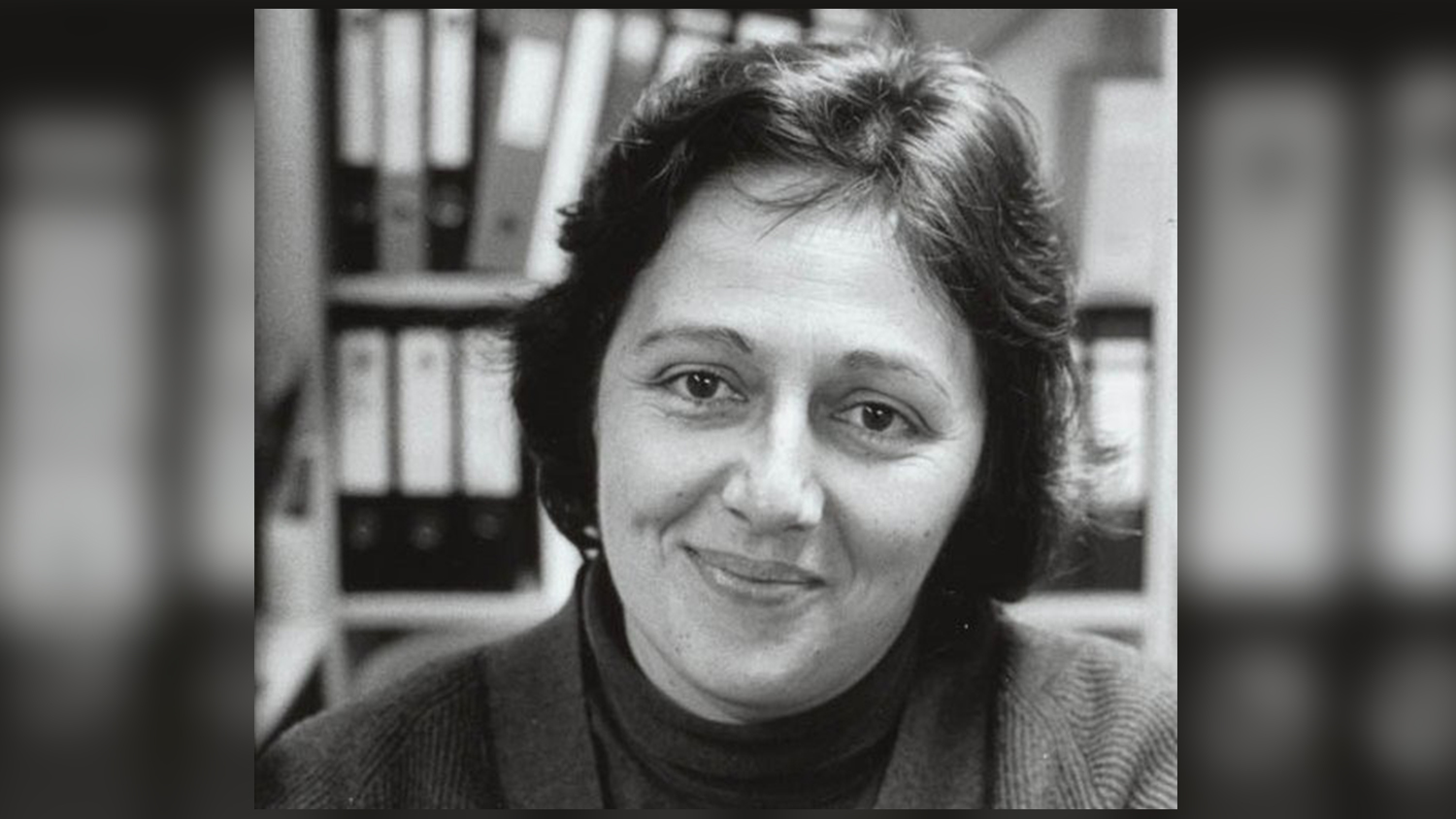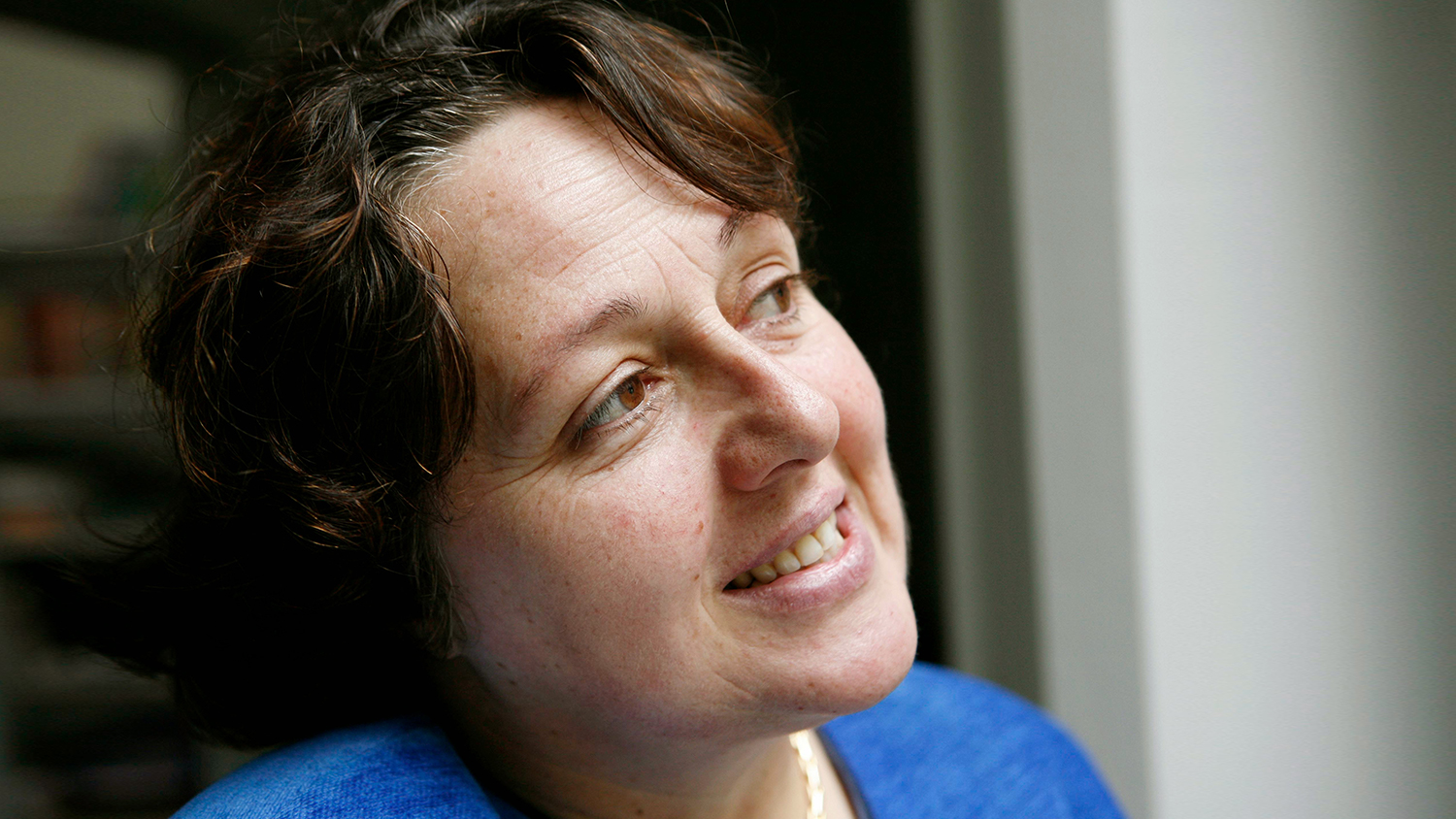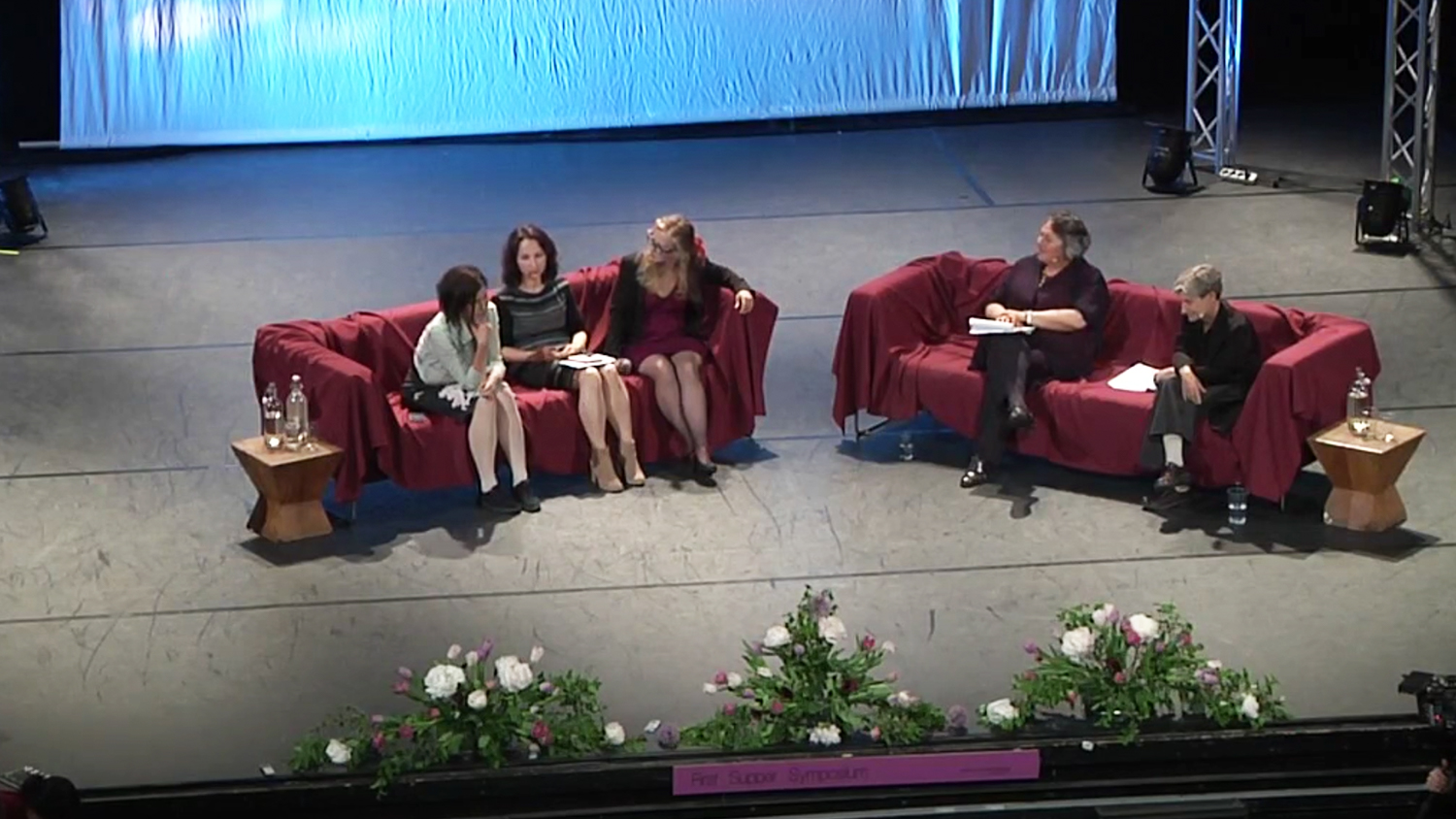Rosi Braidotti
‘A war between feminism and the LBGTQ+ movements plays into the hands of the Right’

Believe it or not, Rosi Braidotti brushes off the label of pioneer even though she is the woman who founded the Gender Studies programme, the Netherlands School of Women’s Studies, the Noise summer school, the European thematic network on Gender Studies (Athena), and the Centre for Humanities. “All women and LGBTQ people are pioneers because they’re all doing things that had never been done before”, shoots the Italian-born philosopher.
When Braidotti arrived in Utrecht from Paris in 1988, she was only 32 years old. She was initially given a two-year contract as a professor and many were those who thought she wouldn’t manage to get the programme off the ground. But, determined to bring the perspectives of women and LGBTQ people into academia, she used her remarkable networking skills to establish the department and forge international partnerships that strengthened research in the field. In his speech following Braidotti’s farewell lecture on June 13, UU Rector Henk Kummeling praised her role as an “active networker”, saying she has not only acquired an immense international reputation for herself but also contributed to boosting UU’s fame abroad.
Although she admits there is still a long way to go, Braidotti says she “is proud and grateful to have been part of an incredible cultural revolution.” But she also has her eyes on the future. Alongside her partner Anneke Smelik, she is one of the creators of the Rosanna Fund for Women, which aims to ensure that promising women studying at UU do not drop out because of a lack of funds. She believes in making room for the young, while the young should try to understand the context in which older generations were operating. “Some of the people who taught me are still teaching. They’re 80, come on!”, she says, throwing her hands up in the hair.
In 2005, after she was knighted by Queen Beatrix of the Netherlands, Braidotti decided to leave the Gender Studies department to create the Centre for Humanities and focus on her work on the posthuman. “People were calling me ‘the tsarina of Gender Studies’. I thought: ‘I can’t do this anymore. The movement needs to stay radical. We need to make way for the young, with us in the backseat advising’”
What does the city of Utrecht mean to you?
“I’ve been here longer than anywhere else. Utrecht means the world to me, I am a certified City Bell-ringer and I love roaming around town on my bike. I even initiated three alternative guides to the city of Utrecht: the first one by Esther Captain, was about Utrecht and slavery, which was later expanded by Nancy Jouwe, and the other two focused on the Jewish Utrecht and Utrecht & Women.
“When I first came here from Paris, where I studied and worked for almost ten years, my Parisian friends thought I’d gone mad. Utrecht was a very quiet place in 1987. At the time, the newspaper Le Monde published an article titled Utrecht à voix basse (Utrecht undertoned, Ed.) and I think it was that sense of concentration and beauty, as well as the fact that it is a bit outside the hustle and bustle of Amsterdam, that made the city look so protective and welcoming to me – within the parameters of that society and its contradictions, of course.
“To me, Utrecht also means my partner, Anneke. Through her family and my immense love for her, I began to understand this country and its complexities, which are so different from those of my own country. Furthermore, Utrecht means acceptance and safety - I’ve always felt very safe here. Working with Gender, I also see the problems, of course. But this is a far less violent country than my own. Feminicide is not a national sport and the Netherlands doesn’t have the same fascist impulse and history as Italy has.
 Photo: DUB (Ublad), Maarten Hartman
Photo: DUB (Ublad), Maarten Hartman
What were your first impressions of the university?
“Much like Oxford and Cambridge, Utrecht is a place where the city and the university are interconnected, inseparable. It’s a city built around libraries, churches and teaching halls. Back then, De Uithof was difficult to reach. There were cows grazing around the area, it was so pastoral. Coming from the centre of Paris, which we thought was the centre of the world (there was still that slight arrogance), sometimes I thought to myself: “where am I?” At the same time, UU had just opened one of the first job calls for a Women’s Studies Professorship and Curriculum in Europe. And it wasn’t just one, it was part of a series of fifteen experimental chairs distributed across the country. I thought: ‘how does this work? How can an institution with so much formality and gowns, located in such a venerable place, be completely open to the most radical issues?’ I couldn’t figure it out and I was certainly fascinated.
“The procedure was long but I ended up getting the job. There was real goodwill, ‘let’s see if this can happen.’ Now, we’re not fools, this is also called repressive tolerance: if you put the radicals inside the institutions, you do your best to de-radicalise them. That is a really clever move and in some ways the key to Dutch social policy: ‘If you, radicals think you have something to offer, well, then offer it! Stop being against for the sake of being against and show us what you’ve got.’
“Utrecht was an ancient but not yet a highly-ranked university, it was trying to become a world player and I think I’ve helped them out in that regard. But they have done it across the board, it was a really concerted effort to be both innovative and traditional, both radical and excellent. That is UU’s profile. But, in the beginning, I couldn’t yet figure it out.”
Even though Gender Studies is now an established department in Utrecht and many other universities, some people still regard it as activism, not science.
“I think that will stay. It is a stigma that’s also attached to postcolonial studies and race theory, as it was to environmentalism until recently. The agenda has a social side, but also a scientific one. At the European level, this is clear. The European Commission recently published a document called Gendered Innovations, in which the science programme lays out what the agenda means in terms of science. The project was coordinated by Ineke Klinge, who was one of my first Phd students. In the Humanities, however, there is more resistance. Even at my farewell lecture, an elderly gentleman came to me to say ‘I was scared when you were speaking.’ I replied: ‘scared of what?’ Then he said: ‘I’m a white man!’ I reacted by telling him not to take it so personally. Just accept that your dominion and your unearned privileges are over.
“There are many factors that explain this resistance and, in the Humanities, it is quite possible that the disciplines stay devoted to the past and do not come to terms with the present, which is almost impossible in any of the other sciences. This devotion to the past also entails a commitment to Humanism, to an anthropocentric vision of the human, and an ‘if you want to join the club, you must follow its rules’ attitude. That attitude is still prevalent among the old generation. We challenged it, of course, but progress is slow. It is up to you, young people, to speed up the rate of change.”
What would the Rosi of today tell the Rosi of 1988?
“Probably to be a little bit more patient and understand how crucial management is. Not that I didn’t follow the institutional procedures, but I was very impatient and I thought we could set up our own alternatives. Maybe be a bit more careful. Basically, be older. Thirty-two is a bit young to become a professor. My impatience may have alienated a few people along the way, such as the Royal Academy, but at the same time, first generations tend to do that. I was under pressure to show results as I had a two-year contract.
“I would also tell my younger self to go a little bit slower, maybe cultivate connections with all those conservative men – we really sent them packing. All my generation did that and people don’t understand what that cost us in terms of our careers. Maybe I should have had more compassion for an older generation that saw us coming as the barbarians of the city, taking down the university, when in fact we thought we were enhancing it, and ultimately we did.
“I cannot describe the sense of purpose and conviction that we were what was happening, that we were transferring knowledge from the world back to the university. Then we established a European network, transferring Gender Studies from one to the other, and set up GEMMA (the Erasmus Mundus Master’s in Gender Studies which involves several universities affiliated with Athena, Ed). You can’t beat that feeling, it was just fireworks.”

Photo: DUB (Ublad)
In June, the Supreme Court in the US overturned Roe vs Wade, the Supreme Court decision making the right to abortion constitutional. Isn’t it frustrating that rights women had to fight long and hard for can be taken away just like that?
“This is a movement marked by the eternal return of modulations on the same question: every generation must continue to reshape it. We cannot go to sleep. That’s why the Rosanna Fund is so important, as it ensures there is money to enable women to get an education and continue these conversations.
“Fifteen years ago, I started going through all my boxes of documents and archiving them at the Women’s Archives in Amsterdam, Atria. That is one of the biggest feminist archives in Europe, open to the public and active since the 1930s. It’s all there: the making of the Master’s programme, the making of the PhD programme, the making of Athena, the making of the NOISE Summer School… If we disappear, then somebody a hundred years from now will know we were there.
“I cannot stress enough how important archiving is, for future generations. After all, with one strike of the supreme court, they can send us back to the middle ages. Such is the power of the dying patriarchy. Because yes, it is dying, but they still have enough rage in them to continue fighting to the very end. And it’s still early days for us newcomers: this university is 386 years old.”
The number of women employed by the university has increased significantly since you first joined it. Last year, for the first time in the history of academia in the Netherlands, one of every four full professors in Dutch universities is a woman. How do you evaluate this change?
“This is one of the great successes of my generation. I look upon the equal opportunities movement, including liberal feminism, with gratitude. It is not my critical line, but they have done an amazing job. Christine Lagarde, the president of the Central European Bank, has implemented incredible policies to help women’s careers: 50 percent everywhere, salary equality, pregnancy and childhood leave… Unimaginable support. And then some dismiss them as ‘liberal feminists.’ The equality movement needs to be supported and kept alive. It’s slow, it’s not radical, it doesn’t rock the boat, but it does an important job. They’re letting women and LGBTQ people in! It’s not what we do because it’s boring, but a lot of our graduates get jobs related to equal opportunities at different levels.
“When I came to Utrecht, my position was anomalous. I was really young, only 32, because who else becomes a feminist professor? Who else takes a job that, when they appoint you, they say ‘we don’t think you’re going to be here longer than two years’? In 1988, about two percent of UU’s professors were women. We also didn’t have all the professional networks and organisations we have now, such as the National Association of Women Professors, which was founded in the 1990s. Today, the percentage of women professors is 25 percent and increasing. So, mission absolutely accomplished, great work from the equal opportunities front.
“The critical annotation is that, firstly, we need to keep the transformative intersectional process going and not stop at equality; secondly, that even this moderate amount of progress, unfortunately, occurs in a context in which Humanities and Social Sciences are losing social prestige and funding for research. So, I fear that we have occupied the spaces that patriarchal knowledge was vacating. The tendency is that, once a profession becomes feminised, it is declassed. I would like to see the statistics of how many of those with PhDs in the Humanities actually find jobs in their fields. According to Forbes Magazine, the market value of university degrees continues to decrease."
Many countries are witnessing a rise of the far-right – often with a discourse that establishes gender studies and the LGBTQ movement as a huge threat. Take president Jair Bolsonaro in Brazil or Viktor Orbán in Hungary. What do you think about that?
“In the US, Christian fundamentals have been at work since the day Roe vs. Wade was passed. Their brand of protestant extremism comes from the religious fanatics that left England and the Netherlands in the 1770s and white supremacism is the glue that binds them. In the Trump era, they somehow come of age.
“Then, there is Putin’s Russia. More specifically, the philosophy of Alexander Dugin, favoured by Putin and the former White House Chief Strategist Steve Bannon: he does a crossover between the Russian mode of autarchy and nostalgic neo-imperialism. It’s a spiritual renewal discourse, in which Europe is effeminate because women and LGBTQ people have rights and dignity, so let Russia come with its solid traditional patriarchal values and renew the world.
“Steve Bannon’s association with Dugin has had a huge impact on right-wing movements across Europe. He even had a political training school in Italy, which finally has been closed down, and we know that Putin has funded far-right movements across Europe. In sum, there has been a clear political campaign to bring this kind of reactionary theological conservatism into the secular territory of Europe and the divided social context of the US.
“What the American right has invented is a series of culture wars against something they call ‘gender ideology’ as well as against ‘critical race theory’. This move has proved effective in dividing the feminists and the LGBTQ people, often pitching them against one another. Simplifications and insults are hurled against them, in the name of traditional family values, in a spirit of nationalism and xenophobia. What a political operation! A cultural war against but also between feminism and the LBGTQ+ movement plays into the hands of the right beautifully. And then people like Orban, Putin and Bolsonaro add insult to injury and say: ‘look at these people, they are not only abnormal and unnatural but also divisive!’
“This state of political fragmentation worries me as it becomes very difficult to create a basic alliance. I’m also angry at the imposition of any single models of, for instance, language and identity for everybody in the feminist and LBGTQ+ movements. This is not a time for single model paradigms, but for multiplicity, alliances and openness.
“There was never a moment when the feminist and LBGTQ+ movement was just one thing. Those saying that it was all white, middle-class women simply weren’t there. Start reading the history of those movements, go have a look at my archives. There is a contemporary re-creation of 70s feminism as exclusionary and limited. Of course, it was limited, there was a cold war going on and we didn’t have the Internet, for Christ’s sake. But to think there were only white, heterosexual women there, you have got to be kidding me. It was mostly lesbian energy that drove the movement. Straight women had other things to do in the 60s and 70s, believe me. Did you not watch the series Madmen? In addition, black women like Flo Kennedy, Angela Davis and bell hooks were crucial to the early days of the second feminist wave.
“Antagonism and opposition can be healthy, absolutely, but we need to make political alliances to stop the right. There also has to be a sense that institutionalised politics is the art of the possible. The stakes are high and we – the marginalized ‘others’ – are the scapegoats, so we need to win elections. That is less urgent in countries like Holland, where politics is all about coalition and alliances anyway, but in Italy, for instance, it is crucial.”
 Rosi Braidotti interviewing Pussy Riot alongside Prof. Judith Butler.
Rosi Braidotti interviewing Pussy Riot alongside Prof. Judith Butler.
Why do you think this is? Why is this generation of left-wing activists marked by so much antagonism?
"The radical Left is historically plagued by internal divisions. As a teacher, I know how complicated inter-generational relations can be. As I said, I’m not a fan of blaming older generations. Ask us ‘what was it like?’ and we can explain. When young people say ‘your generation only believed in two genders, that is so binary’, are they aware of the fact that, when we started, there was only one sex? There had to be a whole operation to question that, read Simone de Beauvoir’s The Second Sex. We had to bring into being that which was ontologically deleted from the scene. Of course, we had to go from one to two. In the 50s and 60s, there wasn’t even a binary, there was only ‘one’ and ‘minus one.’ In sum, I think there is a lot of ignorance being thrown around, a lot of intellectual laziness. Be historical, and historiographically accurate, and be fair-play in your assessment of what was a different moment.
“We need to make alliances and keep our eyes on the prize. There’s a document, endorsed by the European Commission on how the anti-gender movement is funded by the American Republicans and the evangelicals through their headquarters, mostly in Hungary. Staggering figures. Millions going in. These infiltrators are drawing extreme positions also among the left. You do not fight them simply by trying to remove the word ‘women’ from our political vocabulary. You can’t just delete an entire category to establish another. We should proceed by adding complexity, so it should be ‘women and, and, and’. Why say ‘people with a uterus’ instead of ‘women’ and, conversely, why impose one essential category of ‘woman’ as the dominant one? Why not both? Why not “… and, and, and’? Women are over fifty percent of the world’s population, but they are not one and the same. You have to name them and then amplify to other categories. We should have a politics of adding, not of subtraction. That is reductive Hegelianism. The narcissism of small differences, as I call it. Why does your politics have to cancel mine? Why is there a place for only one line, one mode of existence? This is very authoritarian thinking!
“I am a very happy cis lesbian woman of the older generation, I can’t be a 30-year-old with the fluidity that you have today - which we facilitated for you, let’s face it. One of my best-selling books is called Nomadic Subjects, We may differ, but we don’t have to oppose or annihilate one another. Why can’t we reach across? If we impose a single model, we’re doing the same thing as Bolsonaro, only in reverse.”
What memories put a smile on your face when you look back on your career?
“My fondest memories are from those very early years. My generation was all about groups and going to the streets. It’s different from this generation, which is more ‘me and my laptop.’ There were lots of us and we did lots of things together. I would always throw a Christmas party at my house and I cooked for everyone, which was an immense pleasure. Everyone was laughing and screaming. Basically, the friendship, the camaraderie, the joy, the togetherness, the sense of being part of a community. Those moments when you know in your heart that they can delay you, but they can never delete you.”